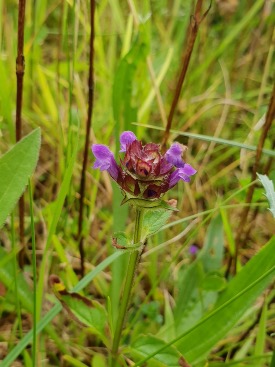 A new study has shown that some smartphone identifier apps misidentify at least one in five plant species.
A new study has shown that some smartphone identifier apps misidentify at least one in five plant species.
With spring in the air and more people spending time outdoors, smartphone applications offer opportunities to get people engaged with plants, biodiversity and potentially to determine if a plant is problematic or harmful.
Researchers from the University of Galway and University of Leeds have released findings of a study which highlights that they should not be trusted to identify plants with 100% accuracy, a particularly important issue for for toxic plants.
The team tested the ability of six common smartphone applications to identify 38 herbaceous plants native to Ireland. The highest performing app only had 80-88% accuracy.
The study also found that the apps showed considerable variation across plant species, but they were better able to identify plants in photographs that included flowers than when photographs only included leaves.
Dr Karen Bacon, Lecturer in Plant Ecology at University of Galway and senior author of the study, said: “The prevalence of plant ID apps on smartphones means that people can now reach into their pockets, take out their phones and identify plants - easier than ever before.
“This offers a great means of encouraging people to engage with nature and become more familiar with the plants in their local areas or, indeed, plants in new exotic places when they travel.
“However, we don't really know how good many of these apps are at doing what they say they can - identifying plants accurately. This is of particular importance when we consider people trying to identify a plant that an animal or young child may have ingested - how sure can you be that your app is giving you the right identification?”
The app technology is improving all the time, but for now, identifications from such apps should be used as a help to identify plants and not automatically considered to be correct.
The study - “A repeatable scoring system for assessing Smartphone applications ability to identify herbaceous plants” - has been published in the international scientific journal PLOS ONE - and was authored by Neil Campbell, who carried out the work while completing a Master’s degree at the University of Galway; Dr Karen Bacon; and Dr Julie Peacock, Associate Professor in Ecology at the University of Leeds.
Dr Peacock said: “Plant identification apps have huge potential to improve plant awareness in the general population.
“They can also aid conservation efforts and environmental consultancy teams. However, we should be aware that plant identification apps are only a tool to guide the user. The user needs basic plant identification skills too, as well as a willingness to double check the plant species suggestions that the app gives.
“A calculator is an excellent tool in maths, but without knowledge of at least basic arithmetic, someone using it could not know if the calculator was giving a strange answer. Similarly, basic plant identification skills and a willingness to check suggestions that apps make, will help the individual most effectively use these apps."
The study can be downloaded from the PLOS website: https://journals.plos.org/plosone/article?id=10.1371/journal.pone.0283386
Pictured: Selfheal in the Burren Nature Sanctuary which was identified by the smartphone apps in the study. Credit - Karen L. Bacon